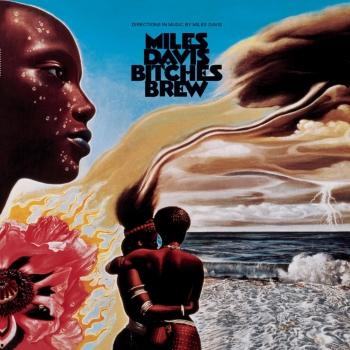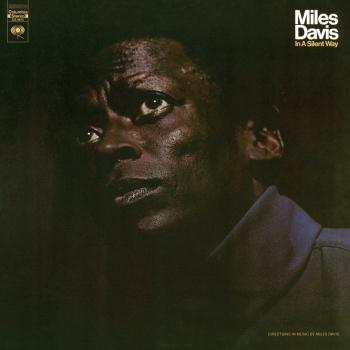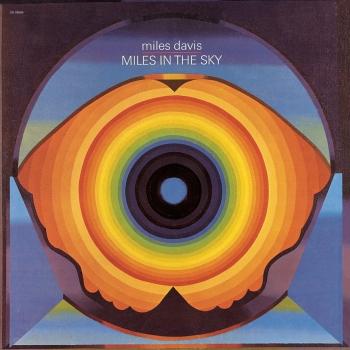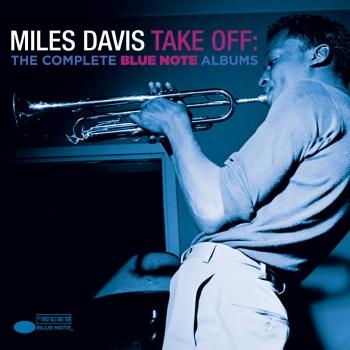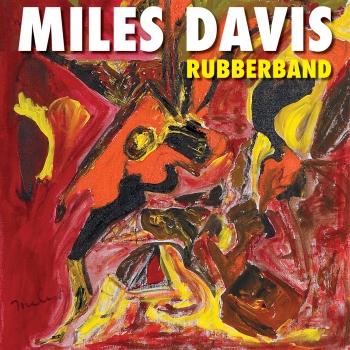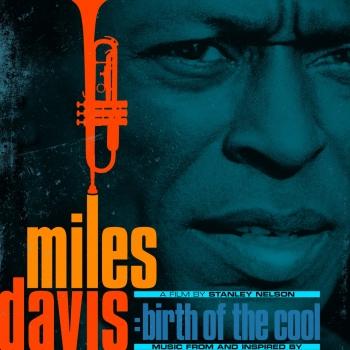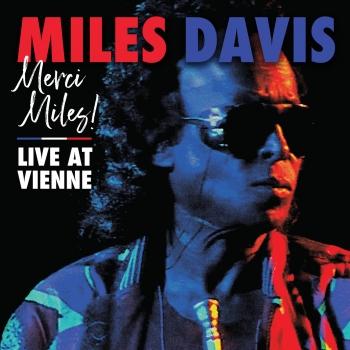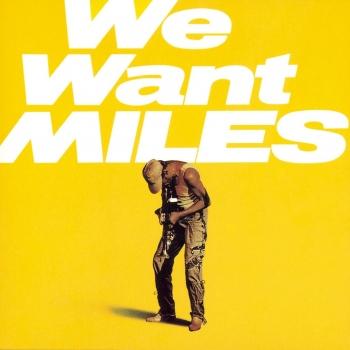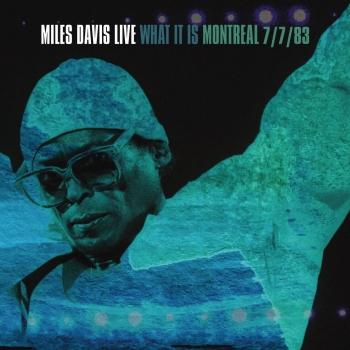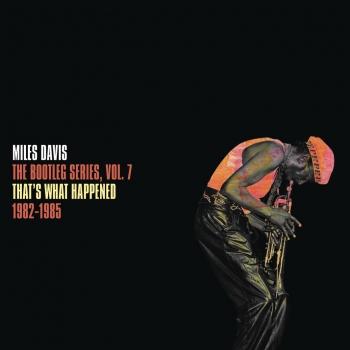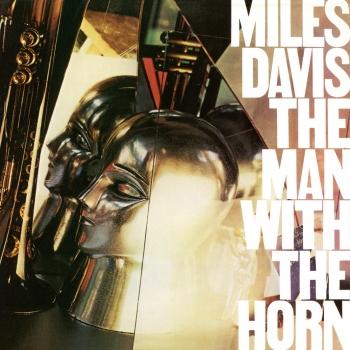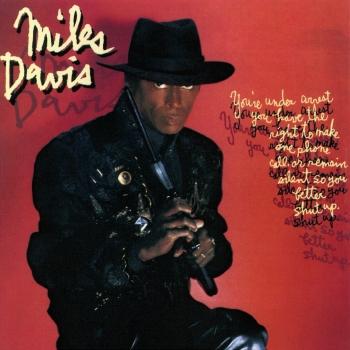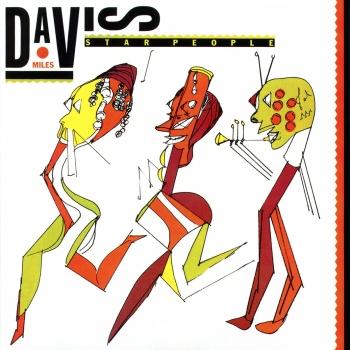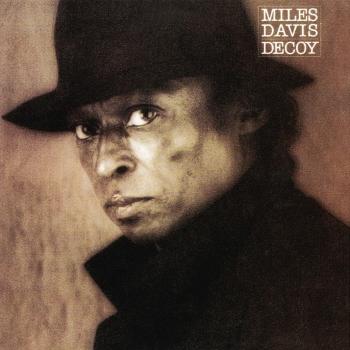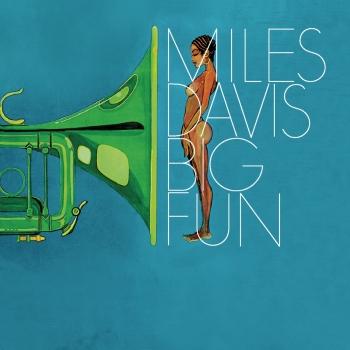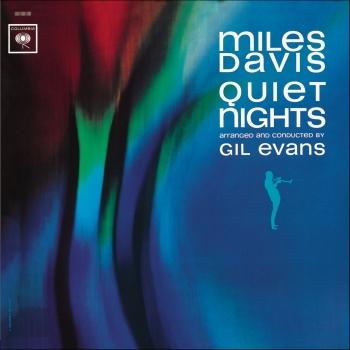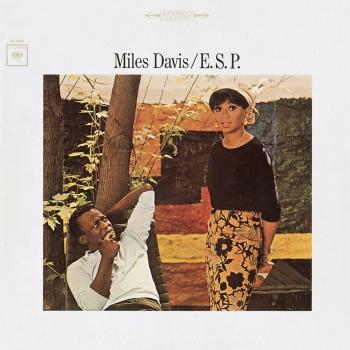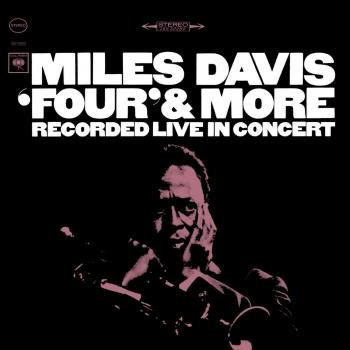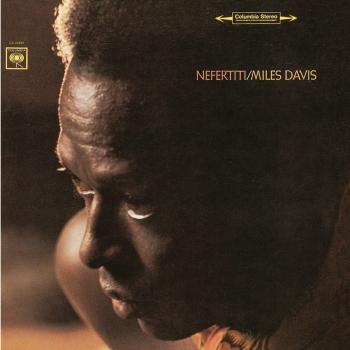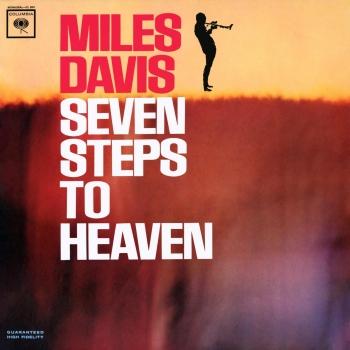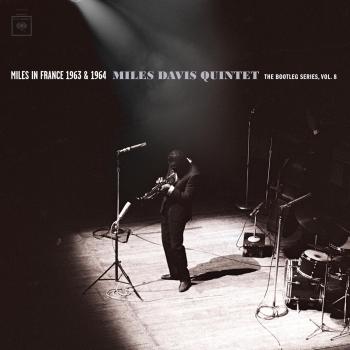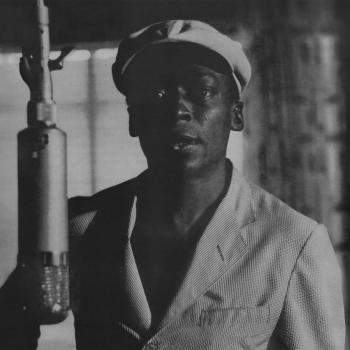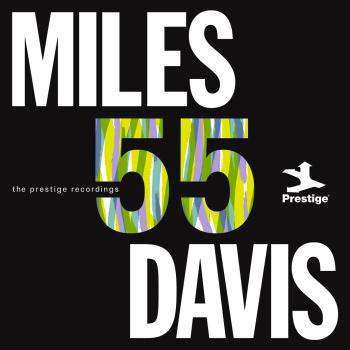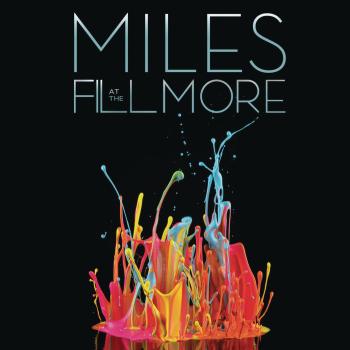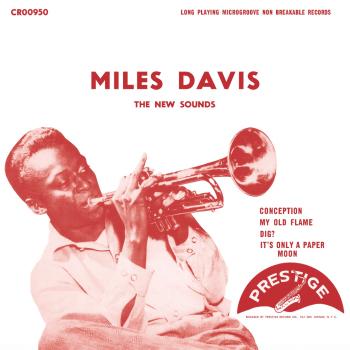
Bitches Brew (Remastered) Miles Davis
Album info
Album-Release:
1970
HRA-Release:
07.02.2017
Album including Album cover
I`m sorry!
Dear HIGHRESAUDIO Visitor,
due to territorial constraints and also different releases dates in each country you currently can`t purchase this album. We are updating our release dates twice a week. So, please feel free to check from time-to-time, if the album is available for your country.
We suggest, that you bookmark the album and use our Short List function.
Thank you for your understanding and patience.
Yours sincerely, HIGHRESAUDIO
- 1 Pharaoh's Dance 20:05
- 2 Bitches Brew 26:58
- 3 Spanish Key 17:32
- 4 John McLaughlin 04:22
- 5 Miles Runs the Voodoo Down 14:02
- 6 Sanctuary 10:57
Info for Bitches Brew (Remastered)
Among the most controversial recordings in the history of jazz, „Bitches Brew“ was Miles Davis' shot across the bow of jazz insularity, a bold statement about jazz's ability to draw upon elements of popular culture, without mitigating its spirit of spontaneous invention. Much as Ornette Coleman's „The Shape Of Jazz To Come“ set a new standard for harmonic and melodic freedom a decade before, „Bitches Brew“ signaled a sea change in jazz.
Davis became a lightning rod for jazz's transformation, by mixing the best elements of '60s free jazz with dancing funk rhythms, electric rock textures, blues phrasing and his own breakthroughs in harmony and modality. Davis employed the Electric Flag's Harvey Brooks to double up with upright bassist Dave Holland on the Fender bass, and he is the modal heartbeat of every tune, freeing up the multiple drummers and keyboardists to weave a complex polytonal/polyrhythmic web of volatile chords and colliding rhythms.
Joe Zawinul's "Pharaoh's Dance" and Davis' "Bitches Brew" treat their multiple themes in a ritualistic manner, as several strata of voices engage the lead melody in exciting exchanges. "Spanish Key" offers a thrilling sense of tension and release, as the trumpeter navigates a "Sex Machine"-styled vamp with a terse, brilliantly constructed solo, revelling in his new guitar-like phrasing. "John McLaughlin" is Davis' tribute to the innovative guitarist; "Miles Runs The Voodoo Down" is a spooky, visceral melange of funk, blues and third world sources; and Shorter's "Sanctuary" is a moody ballad that builds to a fever pitch. The savage emotional power of BITCHES BREW and Davis' subsequent recordings cries out for a fresh critical reassessment.
„Thought by many to be among the most revolutionary albums in jazz history, Miles Davis' Bitches Brew solidified the genre known as jazz-rock fusion. The original double LP included only six cuts and featured up to 12 musicians at any given time, some of whom were already established while others would become high-profile players later, Joe Zawinul, Wayne Shorter, Airto, John McLaughlin, Chick Corea, Jack DeJohnette, Dave Holland, Don Alias, Bennie Maupin, Larry Young, and Lenny White among them. Originally thought to be a series of long jams locked into grooves around keyboard, bass, or guitar vamps, Bitches Brew is actually a recording that producer Teo Macero assembled from various jams and takes by razor blade, splice to splice, section to section. "Pharaoh's Dance" opens the set with its slippery trumpet lines, McLaughlin's snaky guitar figures skirting the edge of the rhythm section and Don Alias' conga slipping through the middle. Corea and Zawinul's keyboards create a haunted, riffing modal groove, echoed and accented by the basses of Harvey Brooks and Holland. The title cut was originally composed as a five-part suite, though only three were used. Here the keyboards punch through the mix and big chords ring up distorted harmonics for Davis to solo rhythmically over, outside the mode. McLaughlin's comping creates a vamp, and the bass and drums carry the rest. It's a small taste of the deep voodoo funk to appear on Davis' later records. Side three opens with McLaughlin and Davis trading fours and eights over a lockstep hypnotic vamp on "Spanish Key." Zawinul's lyric sensibility provides a near chorus for Corea to flit around in; the congas and drummers juxtapose themselves against the basslines. It nearly segues into the brief "John McLaughlin," featuring an organ playing modes below arpeggiated blues guitar runs. The end of Bitches Brew, signified by the stellar "Miles Runs the Voodoo Down," reflects the influence of Jimi Hendrix with its chunky, slipped chords and Davis playing a ghostly melody through the funkiness of the rhythm section. It seemingly dances, becoming increasingly more chaotic until it nearly disintegrates before shimmering into a loose foggy nadir. The disc closes with "Sanctuary," completely redone here as a moody electric ballad that was reworked for this band while keeping enough of its integrity to be recognizable. Bitches Brew is so forward-thinking that it retains its freshness and mystery in the 21st century.“ (Thom Jurek, AMG)
Ranked #94 in Rolling Stone's "500 Greatest Albums Of All Time" - "...The word 'fusion' was never big enough to describe the visceral thrill of these explosive studio explorations and the pioneering tape-edit wizardry of producer Ted Macero..." (Rolling Stone)
Miles Davis, trumpet
John McLaughlin, guitar, electric guitar
Harvey Brooks, electric guitar, electric bass
Bennie Maupin, bass clarinet
Wayne Shorter, soprano saxophone
Joe Zawinul, electric piano, organ
Chick Corea, electric piano
Larry Young, electric piano
Don Alias, drums, congas, percussion
Jack DeJohnette, drums
Lenny White, drums
Jumma Santos, congas, shaker, percussion
Airto Moreira, cuica, percussion
Jim Riley, percussion
Jimmy Riley, percussion
Recorded at Columbia Studio B, New York
Engineered by Stan Tonkel, Frank Laico
Produced by Teo Macero
Digitally remastered
Kaum ein anderer Musiker vermochte die Geschichte des Jazz derart nachhaltig zu beeinflussen, wie der am 26.05.1926 in Alton, Illinois geborene und in St. Louis aufgewachsene Miles Davis. Ohne den 'Prince of Darkness' wären die meisten Schlüsselentwicklungen des Jazz ab 1950 undenkbar gewesen. Mit unnachahmlicher Intonation und sparsamer melodischer Gestaltungskraft hat sich der Trompeter den Status einer Pop-Ikone erspielt.
Seine ersten wichtigen Gehversuche machte Miles in New York, wo er mit seinem musikalischen Vorbild Charlie Parker zusammentraf, in dessen Band er umgehend spielte. 1948 leitete der Trompeter bereits seine eigene Band, die mit Arrangements von Gil Evans zu den 'Birth Of The Cool'-Sessions führte. Neben seinen freelance Arbeiten gründete Miles Davis 1955 sein erstes Quintett bestehend aus Red Garland, Paul Chambers, Philly Joe Jones und John Coltrane. In den Jahren 1963-68 formierte er das zweite große Quintet, in welchem der junge Wayne Shorter am Saxophon brillierte (mit Herbie Hancock, Ron Carter und Tony Williams).
Die späten 60-er Jahre brachten unter Miles' Impuls die Wende hin zum Jazz Rock. Alben wie 'Bitches Brew' und 'We Want Miles' stehen paradigmatisch für diese Zeit. In der ersten Hälfte der 70-er Jahre veränderte der Ausnahmetrompeter häufig die Besetzungen seiner Band. In großzügig angelegten Gruppenimprovisationen integrierte er die vormals 'jazzfremden' Tablas, Sitar und diverse Percussioninstrumente. Den Sound seiner Trompete veränderte er mit dem Einsatz eines WahWah-Pedals. Die psychedelisch anmutende Musik dieser Zeit polarisierte das Publikum, viele Fans des 'frühen Miles' wollten den neuen 'elektrischen' Weg nicht mitvollziehen, doch Davis zielte auf ein junges, experimentierfreudiges Publikum.
Nach längerer Zurückgezogenheit aufgrund von Drogenproblemen kehrte der 'Prince of Darkness' in den frühen 80-er Jahren mit jungen Musikern zurück, seine Band wurde zum Sprungbrett für die wichtigsten Karrieren des aktuellen Jazz. Unter seinen Schülern waren John Scofield, Kenny Garrett, Darryl Jones und Marcus Miller. Der Bassist, Multi-Instrumentalist und Produzent Miller schuf mit Miles Davis die deutlich von der aktuellen Popmusik beeinflußten Spätwerke 'Tutu' und 'Amandla'. Diese Alben zeigen in vollendeten Produktionen das Hit-Potential des Trompeters, der in zahllosen Konzerten dieses Material immer neu als elektrisierender Improvisator präsentierte. Am 28.09.1991 starb der wichtigste Musiker des Jazz wenige Wochen nach seinem letzten Konzert an einer Lungenentzündung. Das posthum veröffentlichte Album 'Doo-Bop' wurde 1992 mit dem Grammy in der Kategorie 'Best R&B Instrumental Performance' ausgezeichnet.
This album contains no booklet.










